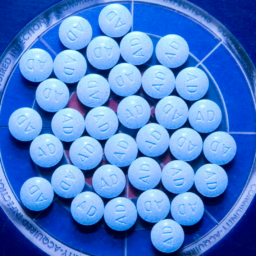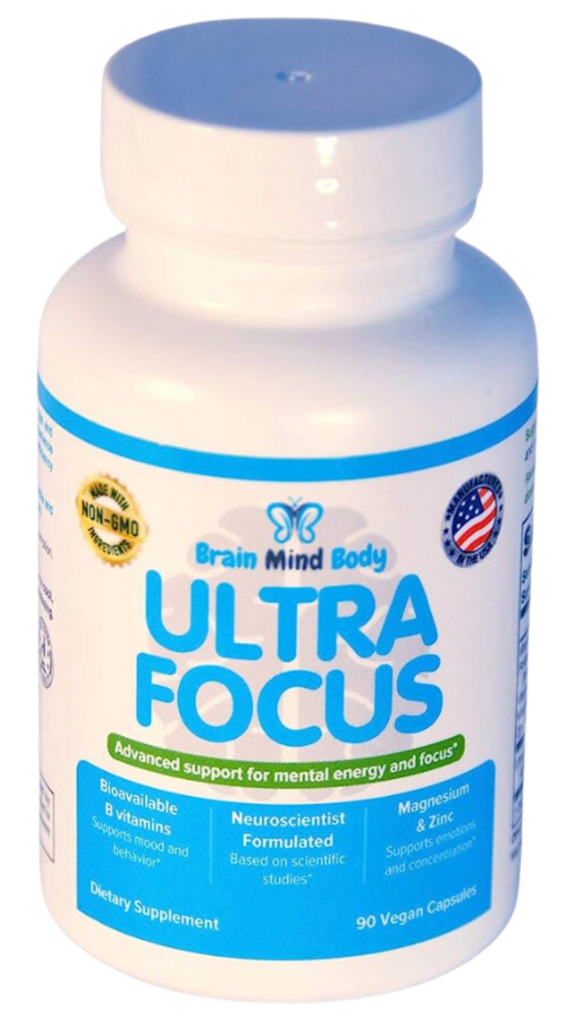
The nationwide shortages of Adderall and Concerta are of particular concern because these are staple medications for people diagnosed with ADHD. They are widely prescribed to help people with substantial attention deficits maintain focus and reduce impulsivity—both key elements for productive day-to-day living. Many people rely on these medications and fortunately, we have been able to maintain a supply for our customers. However, an increase in ADHD diagnoses each year is only going to place more demand on an already strained supply chain. If people are unable to find a reliable source for their medication, this could affect their mental health, school or work performance, and quality of life.
In addition to medication, lifestyle changes can play a significant role in managing ADHD symptoms. Exercise, a balanced diet, optimal sleep, and mindfulness practices can all help with focus and with reducing impulsivity.
Supplements can also support a healthier brain. Many scientific reviews have been written on the roles of various nutrients for optimal brain function.(1-4) The National Institute for Health has published fact sheets for nutrients and the roles each plays in maintaining a healthy brain and body.(5-10) Luckily, at Peoples, you’ll find the most efficacious, highest quality supplements, along with knowledgeable staff to guide you.
Key Nutrients for a Healthier Brain
- Phosphatidylserine and alpha-glycerophosphorylcholine (alphaGPC)
Phospholipids are vital foundational molecules for all cell membranes.(5) They are also significantly involved in the production of neurotransmitters, their release, and their postsynaptic functioning. Studies show they improve learning ability, concentration/focus, mood, memory, and reduce restless/impulsive behavior by increasing acetylcholine and dopamine outputs.(1,4,5)
- Vitamin B6, Folate and Vitamin B12
These B vitamins have an acute effect on the brain by affecting the metabolism of neurotransmitters including dopamine, norepinephrine, serotonin (and also melatonin), all crucial to neurological and psychological status. In addition, they have a long term effect via decreasing homocysteine levels which helps preserve the integrity of the brain by preventing vascular disease, also crucial to cognitive function. Methylfolate and methylcobalamin are the forms of these vitamins that are active in human metabolism.(1-4, 6-8)
- Magnesium
Magnesium plays a role in the active transport of calcium and potassium ions across cell membranes, which is important to nerve impulse conduction, muscle contraction, and heart rhythm.(9) In several magnesium supplementation studies, almost all children with ADHD showed improvement in clinical symptoms, namely: hyperactivity, hypermotility/aggressiveness, and inattentive behaviors. It has also been postulated that magnesium could be neuroprotective from excessive excitatory neurotransmitters, such as glutamate.(1-4) The absorption of magnesium from different salt forms varies greatly, with magnesium glycinate amongst the best in bioavailability.
- Zinc
Several studies have found zinc to be low in patients with ADHD. Zinc plays a role in the metabolism of neurotransmitters, hormones, and nutrients and is important for immune function. It contributes to the structure and functioning of the brain by affecting the formation of neural pathways thereby affecting neurotransmission. A zinc deficiency can have a significant impact on attention, motor activity, cognition, and behavior. There is encouraging support for zinc supplementation in reducing hyperactivity, impulsivity, and impaired socialization.(1,3,4)
- Omega 3 Fatty Acids
Omega-3s are important components of the membranes that surround each cell in your body.(11) Deficiencies of these fatty acids have been linked to problems with learning and memory.(12)
Top Supplement Recommendations
Ultra Focus and Ultra Social are two supplements to explore which contain most of the nutrients listed above. They are highly recommended by our wellness team and continue to be top sellers across all four stores.
Feel free to come into Peoples Rx to discuss these supplements with our wellness experts, and as always, discuss with your medical provider what the best solutions are for you.
Dr. Lynn Roper, RPh, PhD has been with Peoples Rx for almost 30 years and has a PhD in Neuropharmacology from UT Austin. You’ll currently find her as the Pharmacist in Charge at Peoples Westlake. Her passion in compounding is anything that supports brain function without side effects. Lynn is passionate about working with doctors to find compounded medications that enhance the quality of life for children and young adults with spectrum disorder, ADHD, and more.
If you have comments and/or questions about this blog, email us at blog@peoplesrx.com.
References
- Pellow, J., Solomon, E.M., Barnard, C.N. Complementary, and Alternative Medical Therapies for Children with Attention-Deficit/Hyperactivity Disorder (ADHD). Alternative Medicine Review 2011 16(4):323-337
- Bryan, J., Osendarp, S., Hughes, D., et al Nutrients for Cognitive Development in School-aged Children. Nutrition Reviews 2004 62(8): 295-306
- Esparham, A., Evans, R.G., Wagner, L.E., et al Pediatric Integrative Medicine Approaches to Attention Deficit Hyperactivity Disorder (ADHD). Children (Basel). 2014 1(2):186-207 [https://www.ncbi.nim.nih.gov/pmc/articles/PMC4928725/]
- Kidd, P.M. Attention-Deficit/Hyperactivity Disorder (ADHD) in Children: Rationale for Its Integrative Management. Alternative Medicine Review 2000 5(5): 402-428
- Choline Fact sheet for health professionals – [https://ods.od.nih.gov>factsheets]
- Vitamin B6 Fact sheet for health professionals – [https://ods.od.nih.gov>factsheets]
- Folate Fact sheet for health professionals – [https://ods.od.nih.gov>factsheets]
- Vitamin B12 Fact sheet for health professionals – [https://ods.od.nih.gov>factsheets]
- Magnesium Fact sheet for health professionals – [https://ods.od.nih.gov>factsheets]
- Zinc Fact sheet for health professionals – [https://ods.od.nih.gov>factsheets]
- Omega-3 Fatty Acid Fact Sheet [https://ods.od.nih.gov>factsheets]
- Researchers develop a model for how the brain acquires essential omega-3 fatty acids. NIH News Release Tuesday, May 9, 2023)

